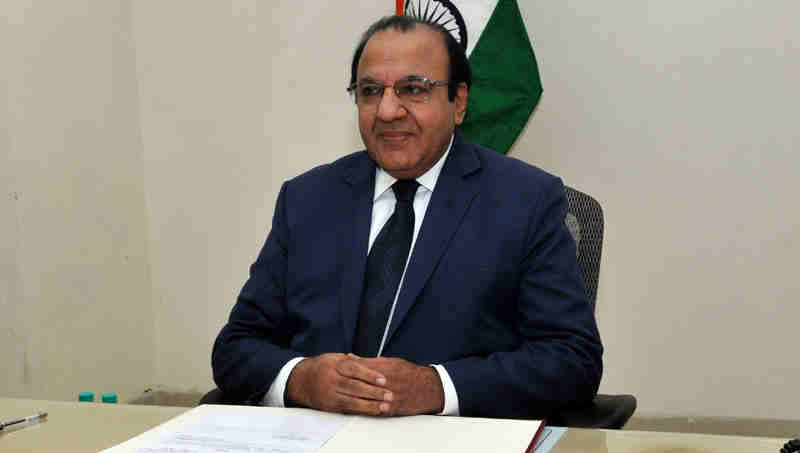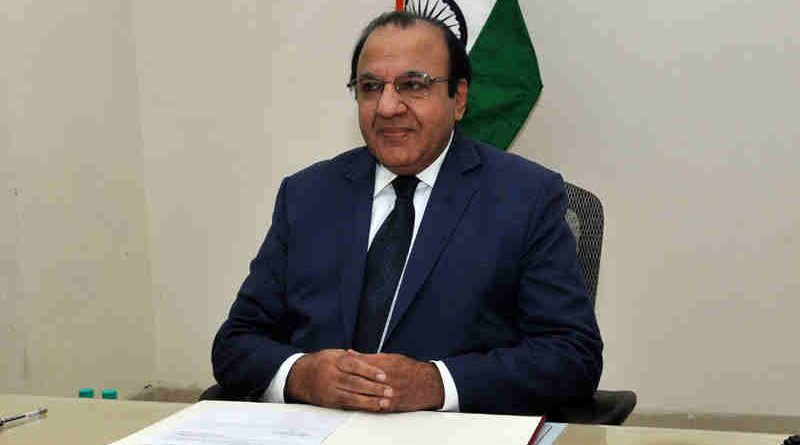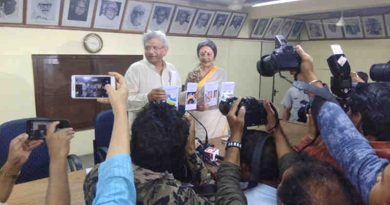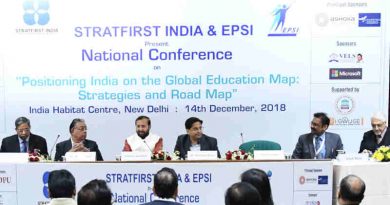Voting Machines Even with VVPAT May Not be Safe in India

Although VVPAT is supposed to provide a mechanism to audit the votes polled in an election, it is still not a foolproof solution.
By Rakesh Raman

The controversy surrounding the use of Electronic Voting Machines (EVMs) in Indian elections refuses to die down.
A former Chief Election Commissioner of India Dr. S. Y. Quraishi said recently that custodial security of the machines is central to EVM security.
Quraishi was responding to the reports that EVMs’ first and second level checks will be outsourced during the upcoming elections. “It is disconcerting. Must be stopped forthwith,” Quraishi said.
Although the ruling party BJP of Prime Minister Narendra Modi is in favor of EVMs, the opposition parties have raised serious doubts about the security of these machines.
Major political parties in India have repeatedly complained about the vulnerability of EVMs. It is also being observed that when EVMs malfunction, they vote only in favor of Modi’s BJP which runs with Lotus election symbol.
Opposition Protests
Earlier, Bahujan Samaj Party (BSP) leader Mayawati had complained about the EVM-based voting fraud in the Uttar Pradesh (U.P) election. But India’s Election Commission had rejected her complaint.
As the vulnerabilities of EVMs are becoming quite visible, besides Mayawati other politicians have been demanding voting on traditional ballot papers.
The president of Delhi State Congress, Ajay Maken, had said that the Municipal Corporation of Delhi (MCD) election should be held on traditional ballot papers instead of EVMs.
Maken had asked Delhi chief minister Arvind Kejriwal to support the demand to hold MCD election on ballot papers because many people have raised doubts about EVMs. The election authorities – which work under Modi government – refused to entertain the opposition complaints. The MCD election was held on EVMs. Obviously, BJP won.
This article is part of our new editorial section that focuses on Lok Sabha Election 2019 in India.
Mayawati – who is a former chief minister of U.P. – had blamed the BJP headed by PM Modi for the voting fraud. She said that BJP rigged the election by tampering with the EVMs in U.P.
Although BJP rejected Mayawati’s allegations, the BSP leader had filed a complaint against Modi’s party. In its complaint to the Chief Election Commissioner, Mayawati’s BSP had stated that BJP had hired software and technology experts to manipulate the voting machines and win the election.
Mayawati said that similar rigging had happened in the 2014 Lok Sabha election also that Modi won to become the PM. It is believed that the last Lok Sabha election result would not have favoured BJP if the voting had happened on paper ballots.
Now it is argued that the so-called ‘Modi wave’ was not driven by voters, but it was driven by voting machines. Obviously, BJP will always oppose paper ballots and any investigation into the misuse of EVMs. And it goes without saying that the Election Commission of India (ECI) will always obey Modi.
[ Also Read: How Governments Manipulate Social Media to Undermine Democracy ]
Vulnerable EVMs
The weaknesses of EVMs in election systems was manifested by professional hackers who participated in the recent Def Con convention in Las Vegas where they broke into the voting machines to manipulate the voting options.
A dedicated platform “hacker voting village” at the convention allowed hackers to break into over 30 popular voting machines as well as voter databases to exploit the vulnerabilities in order to change the outcome of an election.
Reports suggest that hackers were able to gain unauthorized access into voting machines and e-polling software within an hour. They could also steal remote access to tamper with the voting machines.
[ Report Corruption in Delhi Housing Societies to Clean House ]
The Election Commissioner of India is aware of the EVM glitches. In order to quell the opposition voices, ECI says it will create an extra security layer by introducing Voter Verifiable Paper Audit Trail (VVPAT).
In April 2017, in compliance of the order of the Supreme Court of India and as per the recommendation of the ECI, the government had approved Rs. 3173.47 crore for the procurement of 16,15,000 VVPATs to be used in ensuing elections including Himachal Pradesh, Gujarat, and General Elections 2019.
Although VVPAT is supposed to provide a mechanism to audit the votes polled in an election, it is still not a foolproof solution because every voter will not (and perhaps cannot) demand the paper proof after voting. And if a defeated political party wants to recount the votes using VVPATs, it will create a chaos after every election.
If reports of outsourcing of EVMs’ first and second level checks are true, it is disconcerting. Must be stopped forthwith. Custodial security of the machines is central to EVM security.
— Dr. S.Y. Quraishi (@DrSYQuraishi) November 18, 2017
Even Dr. S. Y. Quraishi does not seem to be fully satisfied with VVPATs. Instead of saying that now these EVMs are totally safe, Quraishi sounds hesitant when he said with VVPAT the EVMs will become safer (but not 100% safe).
With the introduction of VVPAT – Voter Verifiable Paper Audit Trail, the EVMs have become safer and more transparent. 100% machines in both HP and Gujarat are attached with VVPAT.
— Dr. S.Y. Quraishi (@DrSYQuraishi) November 18, 2017
As the elections in Himachal Pradesh and Gujarat are being held on EVMs, there is a very high probability that BJP will win the elections.
By Rakesh Raman, who is a government’s National award-winning journalist and social activist. He has formed an environment-protection group called Green Group in Delhi. Earlier, he had been associated with the United Nations (UN) through United Nations Industrial Development Organization (UNIDO) as a digital media expert to help businesses use technology for brand marketing and business development. He also runs a free school for deserving children under his NGO – RMN Foundation.





